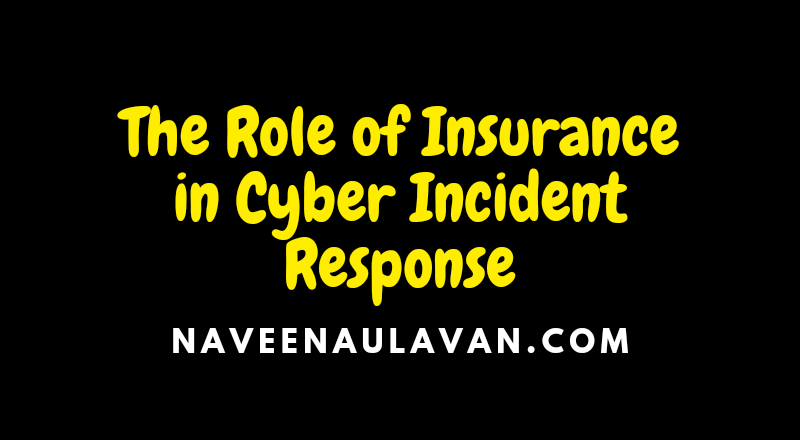The ever-increasing frequency and sophistication of cyber incidents have highlighted the need for organizations to have a robust response mechanism in place. In this era of digital transformation, where organizations heavily rely on technology, it is crucial to have a comprehensive cyber incident response plan. While investing in preventive measures and technological solutions is essential, organizations must also consider the role of insurance in their overall cyber incident response strategy. This article explores the various ways insurance can contribute to effective cyber incident response.
The Growing Threat Landscape
The Evolving Cyber Threat Landscape
In recent years, the threat landscape has witnessed a substantial increase in the number and severity of cyber attacks. Threat actors, ranging from individual hackers to well-funded criminal organizations and state-sponsored groups, continuously exploit vulnerabilities in organizational systems. This has resulted in an alarming rise in data breaches, ransomware attacks, and other forms of cyber incidents.
The Cost of Cyber Incidents
The fallout from cyber incidents is not merely limited to the compromise of sensitive data. The financial impact can be significant, including the costs of incident response, legal fees, regulatory fines, reputational damage, and potential litigation by affected parties. The Ponemon Institute’s Cost of Data Breach Study 2020 found that the average cost of a data breach amounted to $3.86 million, highlighting the substantial financial implications of cyber incidents.
The Importance of Cyber Incident Response Planning
The Need for a Proactive Approach
Organizations must adopt a proactive approach to cyber incident response to minimize the potential damage caused by a breach. A well-defined incident response plan enables swift detection, containment, and remediation of cyber incidents, reducing the overall impact on the organization.
The Elements of an Effective Incident Response Plan
An effective incident response plan encompasses various key elements, including a clear incident reporting procedure, designated response teams, incident containment measures, communication protocols, data backup and recovery procedures, and regular testing and training exercises. By having these elements in place, organizations can efficiently manage and mitigate the consequences of a cyber incident.
The Role of Insurance in Cyber Incident Response
Financial Protection
Insurance plays a crucial role in providing financial protection to organizations in the event of a cyber incident. Cyber insurance policies cover a wide range of costs associated with incident response, including forensic investigations, legal expenses, notification and credit monitoring services for affected individuals, public relations efforts, and even cyber extortion payments. By transferring the financial burden to the insurance provider, organizations can focus on remediation and recovery without undue financial strain.
Customizable Coverage
Cyber insurance policies are highly customizable, allowing organizations to tailor coverage to their specific needs. This ensures that an organization’s unique risk profile and potential exposure are adequately addressed. Policies can be crafted to cover first-party expenses, such as direct financial losses, business interruption, and reputational damage, as well as third-party liabilities, including litigation costs and regulatory fines.
Risk Assessment and Mitigation
Insurance providers often assist organizations in conducting risk assessments and implementing effective security measures to reduce the likelihood of cyber incidents. This proactive approach helps organizations identify vulnerabilities, implement necessary security controls, and enhance their overall cyber resilience. Insurance providers may offer incentives or discounts on premiums for organizations that demonstrate robust cybersecurity practices, further incentivizing organizations to prioritize cyber risk management.
Conclusion
In an increasingly digital world, the role of insurance in cyber incident response cannot be overstated. As cyber threats continue to evolve, organizations must have a comprehensive incident response plan that accounts for financial protection, customizable coverage, risk assessment, and mitigation. By leveraging insurance as a key component of their cyber incident response strategy, organizations can better prepare for and respond to the growing threat landscape. Ultimately, insurance serves as a valuable tool in enabling organizations to recover swiftly and minimize the impact of cyber incidents.
